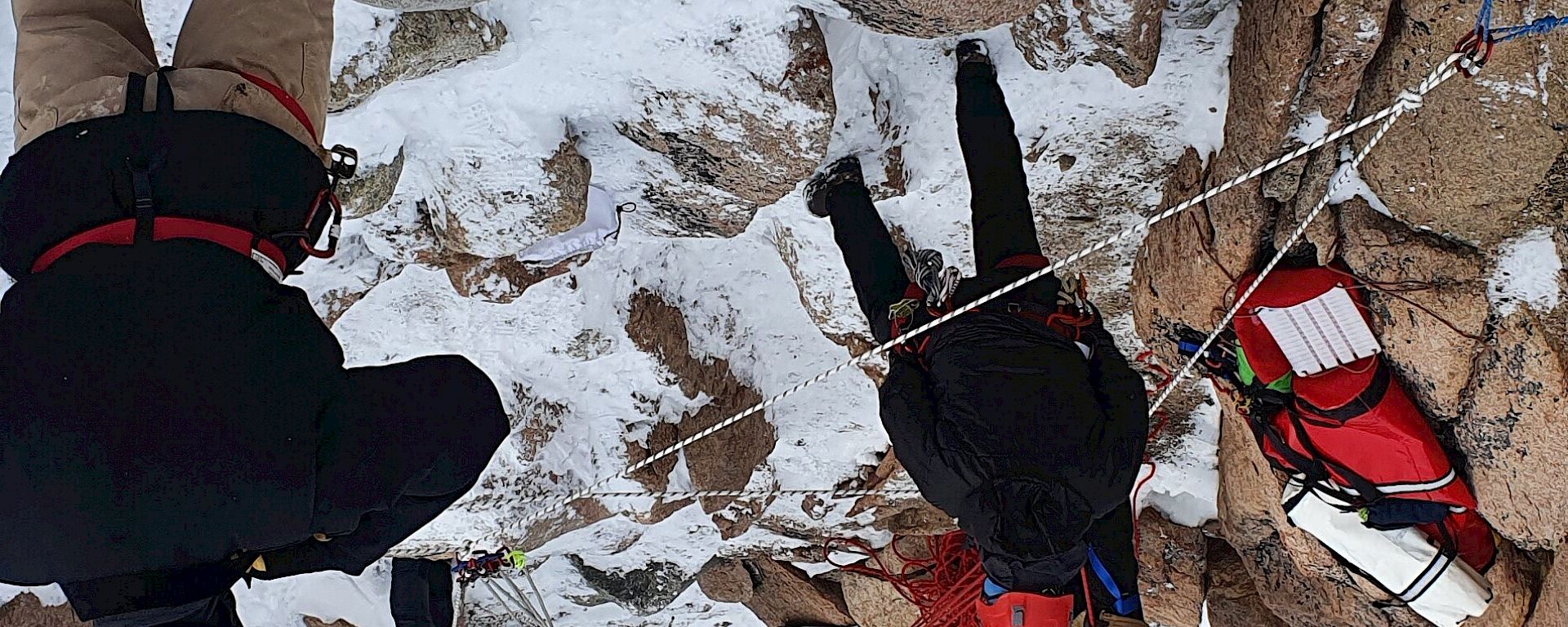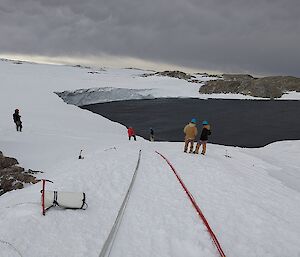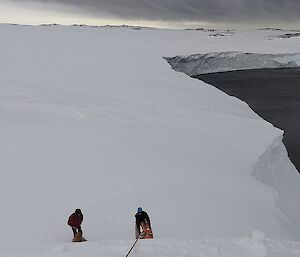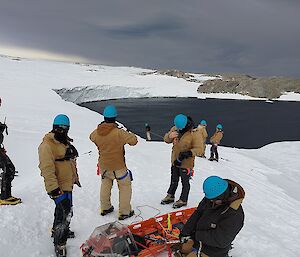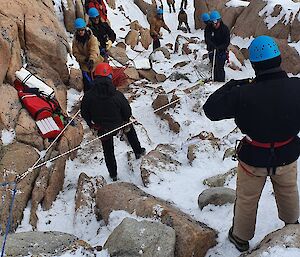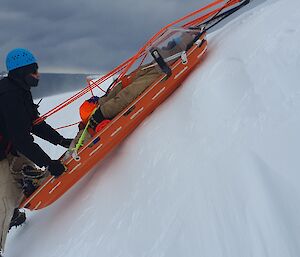Part of working remotely in this hostile and unforgiving environment requires the ability to be self-sufficient as a community over winter. Our supplies, standard practices, and routine procedures around station mitigate any potentially disastrous issues; even something as simple as some frozen water pipes could put an end to a functioning station. In addition to this, the Australian Program allows for recreational and operational field travel, so we need to have Search and Rescue (SAR) capabilities that cater from basic ground searches to technical vertical rescues. The Field Training Officers (FTOs) deliver a range of field training to expeditioners, with technical SAR training being the most complex but rewarding of all.
Recently, 11 of Casey's wintering expeditioners were trained to respond to incidents in a variety of landscapes and conditions. This includes snow and ice or rock, low angle, steep angle, or vertical rescue. They adapted quickly to the new skill set, functioning as a team to lower an attendant over the edge of a slope or cliff, and then hauling them back up with a patient attached in either a harness or stretcher. With repetition of scenarios and rotations of positions in the systems, the team began to find their place and function as one. This transition allows for a new dynamic to enter the room, and that’s when this training starts to feel less like training and more like a day out with friends.
The bigger picture of this training demonstrates that while we have these SAR capabilities we are limited by factors outside of our control, such as weather, and this can delay our response time significantly, potentially by days. Over winter we will become a tight-knit community, even closer than some families, and we do not want to use these skills to respond to one of our comrades. Training will continue over winter to maintain skills, as well as develop the team’s ability, however I sincerely hope we never have to use them.
-Flynn Jackman (Senior Field Training Officer)

